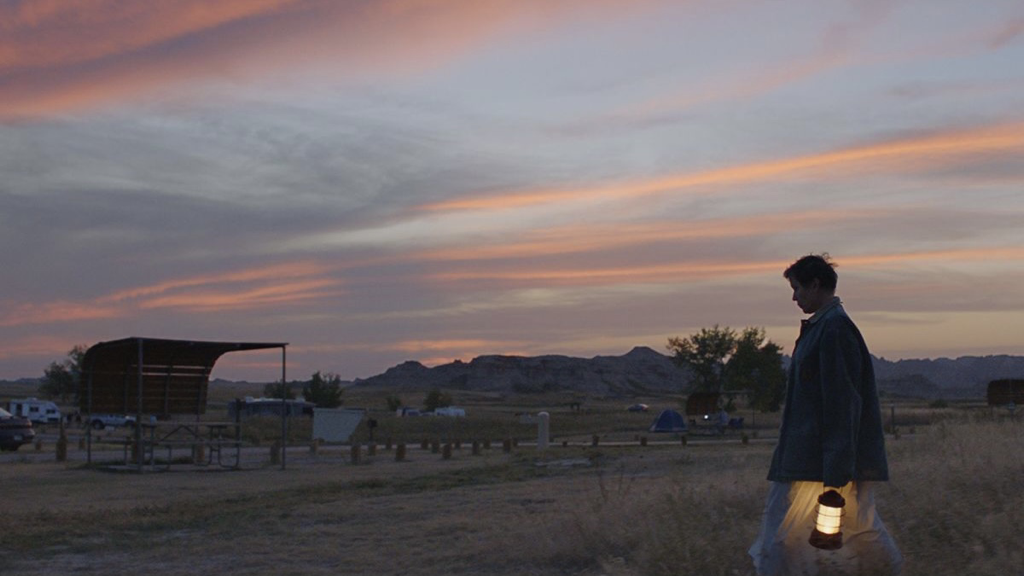Evan D.Among the many beauties of life and love coexists the tragedy of loss that inevitably follows. To get close to someone or something is to know that eventually they’ll be gone. For most that bargain is one worth making but for so many others burned by it in the past, loss can be just too much to bear. Battered down by the pain of losing everything she loved is the starting place for Fern (Frances McDormand) in Nomadland. Already reeling from her husband’s death, the financial crisis soon followed to uproot the factory town they had called home. Fern was forced out on the road, in part to find work but in reality to escape being haunted by the memories that creep into an idle mind. She pays for a storage container to house all of the material remnants of the life she left behind, neither able to let go of the tether to her past nor able to carry with her the mental burden they represent. For as much as Chloe Zhao’s follow up to The Rider is universally accessible to anyone old enough to remember the Great Recession, at it’s heart Nomadland is a very specific character piece. Fern is Nomadland, and in turn the film is her. As Fern tours the American west in search of work she meets a colorful cast of fellow nomads eager to share their stories. In those stories lie the magic of this film. With Nomadland, Zhao continues her tradition of casting non-professional actors to play slightly fictionalized versions of themselves. Some of the most riveting moments feature McDormand just listening to these real nomads tell their true life tales. Although McDormand’s Fern mostly sits there quietly, those stories reveal so much about her too. The incredible character work of Nomadland is a massive credit to the director and actor both. Not often does a film’s lyrical narrative reveal so much about a protagonist that is so silent. Too that McDormand feels so at home among the very people she is portraying is nothing short of miraculous. Zhao has this unique ability to imbue her films with an intense realism while lending to true life subjects an undeniable cinematic nature. Beyond the individuals involved, Nomadland deliberately keeps an ethical distance from the events it depicts. Fern works at an Amazon factory — amazingly McDormand managed filming access inside — but her experience there isn’t explored any more or less fully than when she works at a fast food restaurant or cleans bathrooms in the Badlands. This is a film about the work as it is on the ground, not the high minded battles around it. Similarly the nomads of the film are never looked at with pity or judged for the lives they lead. At one point early on, Fern adamantly states that she’s “house less, not homeless.” She and the others live minimally but you can feel the freedom it brings them. Whether Fern is homeless in a more existential sense is up for debate, but her motives are never questioned. In the end, when her path finally feels like her own choice, Fern’s continued journey takes on a revelatory tone. Not much has changed in circumstance, but her path feels forever altered. One of the great abilities of cinema is to transport viewers into new and unseen worlds. Zhao did this with the headstrong riders of the Dakotas and now again with the economically upended nomads of the American West. Her ability to garner the trust of the real people she depicts and faithfully tell their stories pairs brilliantly with McDormand’s steadfast commitment to a hardened yet sensitive role. Their combination is nothing short of miraculous. TL;DR: Nomadland intimately and unflinchingly depicts the journey of America’s nomadic workers. Zhao’s film is incisive, but never passes judgment on or pities it’s subjects. McDormand gives one of the great performances of this or any year. 9/10
Comments
|
Categories
All
Archives
April 2024
|
